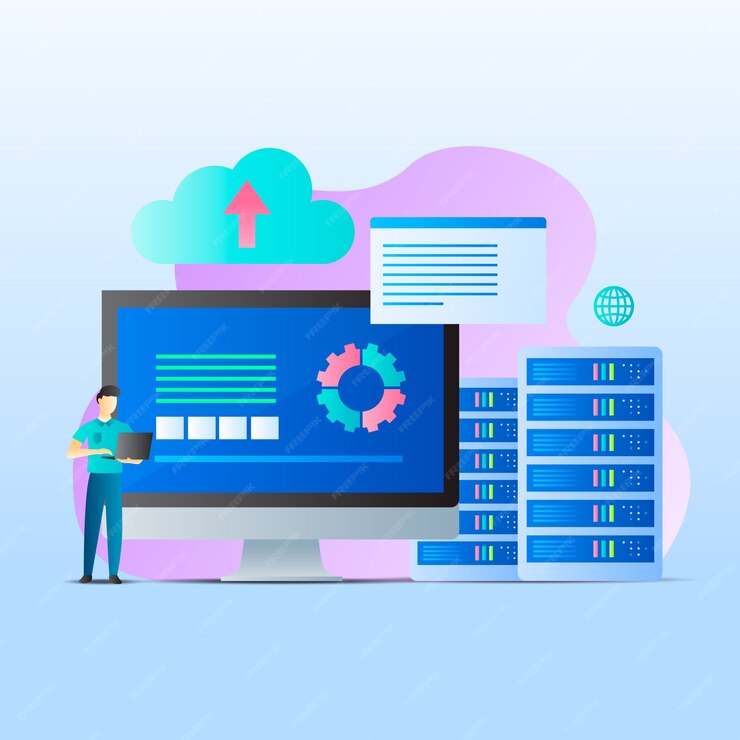Microsoft Access is a fantastic tool for small-scale database management, but as businesses grow, they often find its limitations holding them back. Converting an Access database to SQL Server is a common solution, offering better scalability, security, and performance. However, this migration process is far from straightforward. Many users encounter challenges that, if not properly addressed, can lead to data loss, performance bottlenecks, or application failures.
In this in-depth guide, we’ll explore the most common issues when Convert Access to SQL, provide expert insights, and offer actionable solutions to ensure a smooth transition.
Why Migrate from Access to SQL?
Before diving into the challenges, let’s quickly understand why businesses choose to migrate:
- Performance: SQL Server handles large datasets and complex queries much faster.
- Scalability: Unlike Access, SQL Server supports multiple concurrent users efficiently.
- Security: SQL Server provides better user authentication and access control.
- Reliability: SQL Server is less prone to corruption and has robust backup and recovery options.
- Integration: SQL Server works well with enterprise applications and cloud solutions.
While the benefits are clear, the migration process presents unique hurdles that must be carefully managed.
Common Issues When Converting Access to SQL (And How to Fix Them)
- Data Type Mismatches
Problem: Access and SQL Server use different data types. Some data types in Access do not have direct equivalents in SQL Server, leading to errors during migration.
Example:
- Access’s AutoNumber maps to SQL Server’s IDENTITY, but differences in behavior can cause issues.
- Yes/No fields in Access become BIT in SQL Server, which doesn’t allow NULL values.
Solution:
- Use SQL Server Migration Assistant (SSMA) to automatically convert data types.
- Manually review field types and adjust them in SQL Server as needed.
- Use CAST or CONVERT functions to modify data types where necessary.
- Query Compatibility Issues
Problem: Access uses a variant of SQL known as Jet SQL, which differs from Transact-SQL (T-SQL) used in SQL Server. Queries that run fine in Access may break in SQL Server.
Common Issues:
- Use of IIF() (Access) instead of CASE (SQL Server).
- Nz() function (Access) doesn’t exist in SQL Server.
- Queries with TOP may need to be rewritten using ORDER BY with OFFSET and FETCH.
Solution:
- Rewrite Access queries to be compatible with T-SQL.
- Use stored procedures instead of Access queries where possible.
- Utilize SQL Server’s built-in functions and avoid deprecated Access functions.
- Linked Tables Performance Bottlenecks
Problem: Many Access applications use linked tables to connect to SQL Server. This approach can cause significant performance issues due to excessive network traffic.
Solution:
- Use pass-through queries instead of linked tables for better performance.
- Optimize indexing and create appropriate primary and foreign keys in SQL Server.
- Consider migrating Access front-end forms and reports to a web-based or desktop application that interacts with SQL Server directly.
- Stored Procedure and View Limitations
Problem: Access doesn’t support SQL Server stored procedures natively. If your Access application relies on queries with embedded logic, you may need to rework them into stored procedures.
Solution:
- Move business logic to SQL Server stored procedures or functions.
- Modify Access to call stored procedures using ADO or DAO code.
- Use parameterized queries in Access to interact with SQL Server views.
- User Authentication & Security Challenges
Problem: Access primarily uses file-based security, whereas SQL Server relies on role-based authentication and Active Directory integration.
Solution:
- Implement Windows Authentication for secure user access.
- Assign database roles (db_owner, db_datareader, db_datawriter) to control permissions.
- Encrypt sensitive data and apply row-level security where necessary.
- Application Compatibility & Code Rewriting
Problem: VBA (Visual Basic for Applications) code that interacts with Access tables may need significant changes to work with SQL Server.
Solution:
- Modify VBA code to use ADO (ActiveX Data Objects) instead of DAO.
- Use Pass-Through Queries to execute SQL Server queries directly.
- Test and optimize performance post-migration to ensure smooth operations.
- Indexing & Performance Tuning
Problem: Access allows flexible but often inefficient indexing. SQL Server requires a well-planned indexing strategy for optimal performance.
Solution:
- Use SQL Server Profiler and Database Engine Tuning Advisor to optimize queries.
- Create clustered and non-clustered indexes to speed up searches.
- Use proper normalization techniques to avoid redundant data storage.
Best Practices for a Successful Migration
✔Plan Ahead: Map out your database structure before migration. ✔Use SQL Server Migration Assistant (SSMA): Automates much of the conversion process. ✔Test Thoroughly: Run multiple test cases to ensure data integrity. ✔Optimize Queries & Indexes: Refactor inefficient queries and create appropriate indexes. ✔Train Users: Ensure your team understands the new system to maximize benefits.
Migrating from Access to SQL Server is a powerful step toward improving database performance, scalability, and security. However, it comes with technical challenges that need careful handling. By understanding common issues and applying the right solutions, you can ensure a smooth and successful migration.
Need help with your Convert ms access to Cloud? Contact our expert database consultants today for a seamless transition!
